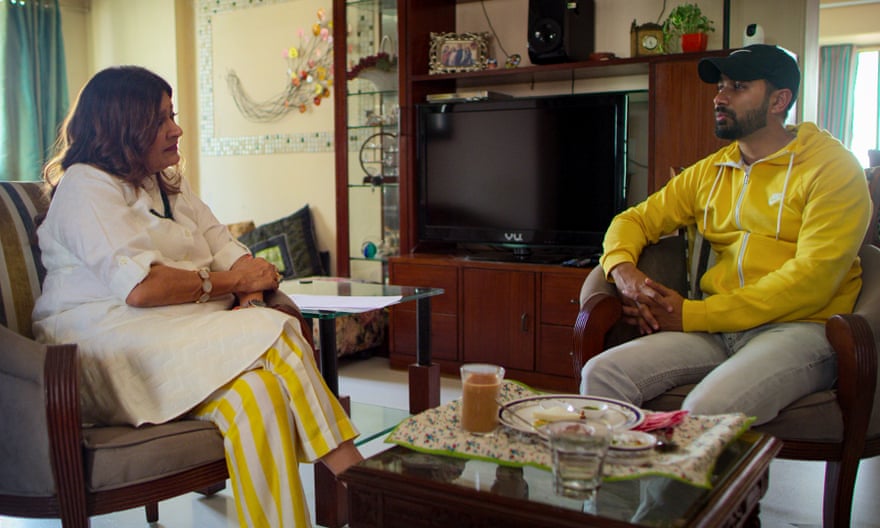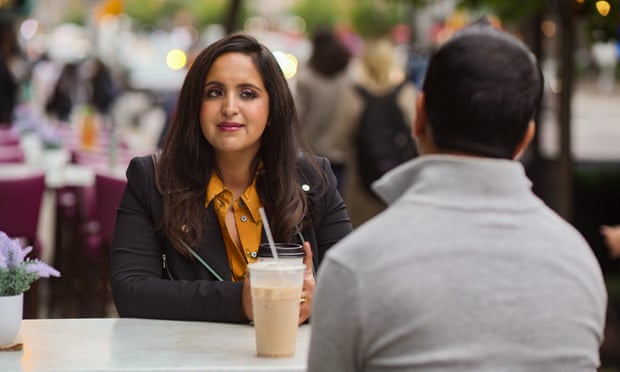The parents of one of my friends have been married for more than 25 years. They met, fell in love when they were young and have been happily together ever since the mid-90s. My friend? She doesn’t want to do it like that – she wants something she thinks will make her far happier. She wants an arranged marriage.
As a woman who grew up in New Delhi, I find myself increasingly concerned about the effect of the Netflix show Indian Matchmaking, which has just returned for a second series. It revolves around Mumbai-based matchmaker Sima Taparia, who travels the world helping her clients find their partners through the arranged marriage system – which is planned and agreed by the families of the couple. The age-old methods Taparia uses in the matchmaking process include consulting face readers – who claim to be able to accurately analyse people’s personalities based on their facial features.
The show’s portrayal of arranged marriages only helps to glamourise – and normalise – a toxic tradition. At the start of the third episode we see an old couple who have been married for 27 years. The programme tries to paint a pretty picture of what a successful arranged marriage looks like as the couple share friendly banter and talk about how they are still in love. They say that it’s very important to find the right partner, even going so far as to explicitly state that “experts” such as Taparia should be allowed to do their job.
My friend loved the first season. Unlike the typical person who enters into an arranged marriage, she doesn’t come from a conservative family, but a modern one; and she doesn’t live in a village, but in the capital of India – one of the most cosmopolitan cities in the world. If she gets her wish, she’ll be entering into one of the 55% of marriages worldwide that are arranged; in India, that rate is 90%, according to a journal published by University of Toronto Press. Even in the US, 86% of the Indian population are still marrying someone they have met in the community.
But what Indian Matchmaking doesn’t show is the reality that most Indian women don’t have the ability to dissolve their marriages. While my grandfather was alive, his daughter, my mother – who spent years trapped in a disastrous marriage arranged by her father – could never even think of that option, because of the fear of him disowning her. She would keep repeating the fact that no one in the family had ever had a divorce – seeing the social stigma of being a divorcee as far worse than being in a miserable marriage. Instead, the expectation is that she had to find a way to make it work, no matter what the effects on her happiness.
The two watchwords of this attitude are “adjust” and “compromise” – and in season two of Indian Matchmaking we hear Taparia use them roughly every 10 minutes. She says them every time a client gives her their preferences for a life partner – especially if her clients are fiercely independent women. In episode one, we get reacquainted with season one star Aparna – who is successful, travels a lot and is currently hunting for a new apartment in New York. According to Taparia, Aparna’s lifestyle is getting in the way of finding marital happiness: she can’t go on a second date because she is on a trip to Paris. Eventually, Aparna stops working with Taparia – presumably after hearing those dreaded two words so often – and starts arranging dates for herself instead. “I believe she’s some other people’s type,” she says of Taparia and her dedication to making people partner up with those they have no interest in. “I don’t know who. But there must be someone who thinks that’s OK.”
Again and again, Taparia tells us that marriage is the first priority, “and then it is love.” Her attitude to young people who want to get married? “You have to adjust a little.”

This is a show that glorifies harmful, outdated stereotypes. Take one of the characters we meet this season: Akshay calls himself the “world’s most eligible bachelor”. He lives with his parents in Nasik, a small town just outside Mumbai, where no girl would match with him on dating apps, no matter how much support his mother gives him (“My mom thinks I’m the most eligible,” he says). Akshay and his family seem to want a woman only so she can give them children; to them, women appear to be merely baby-making factories. This the sort of attitude Indian Matchmaking seems to love. Akshay is so entitled that he thinks his family business – making equipment for chicken farming – should be enough for a woman to move to his small town and have his offspring. The show does little to challenge this, with Taparia seeming to side with him and patronising women who might refuse to relocate to a small town saying: “I always tell the girls, are you marrying the city or are you marrying the boy and the family?”
Of course, not all arranged marriages are terrible. I have come across the occasional couple who make it work in the long run, and for them the process has been a source of great happiness. But, ultimately, it terrifies me that the concept of falling in love is seen as a sort of adjustment. I worry about an attitude that views a lack of romance as something you must put up with, especially for a choice made not by you, but by your parents. In the 21st century, women should not be attempting to undermine their freedoms by reinstating patriarchal attitudes. Instead they should be challenging that frame of mind – no matter what a Netflix reality series suggests.

